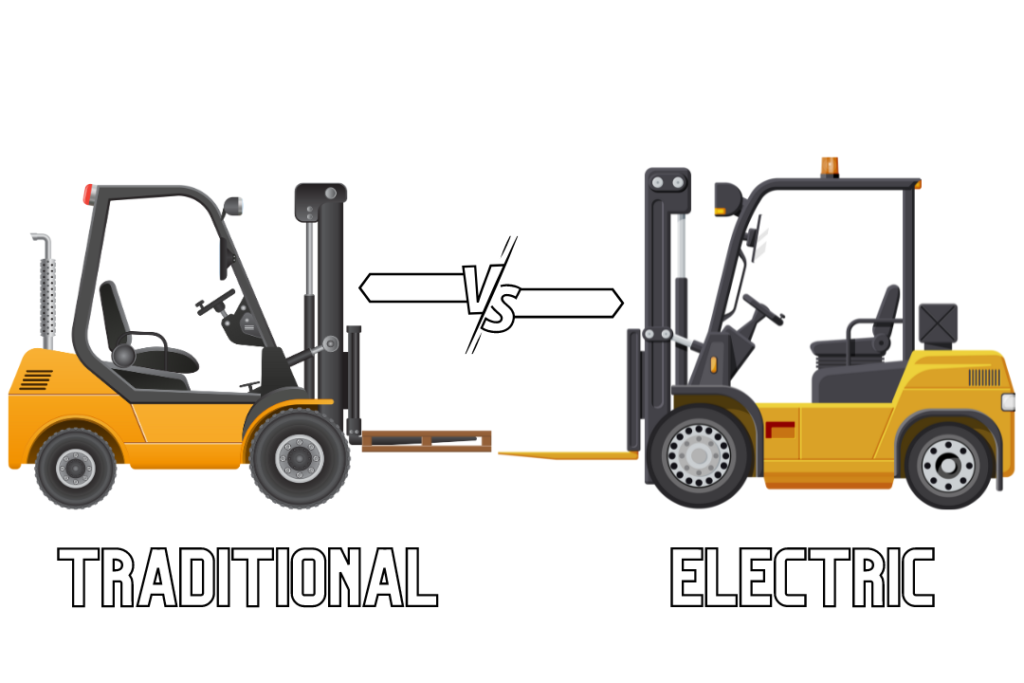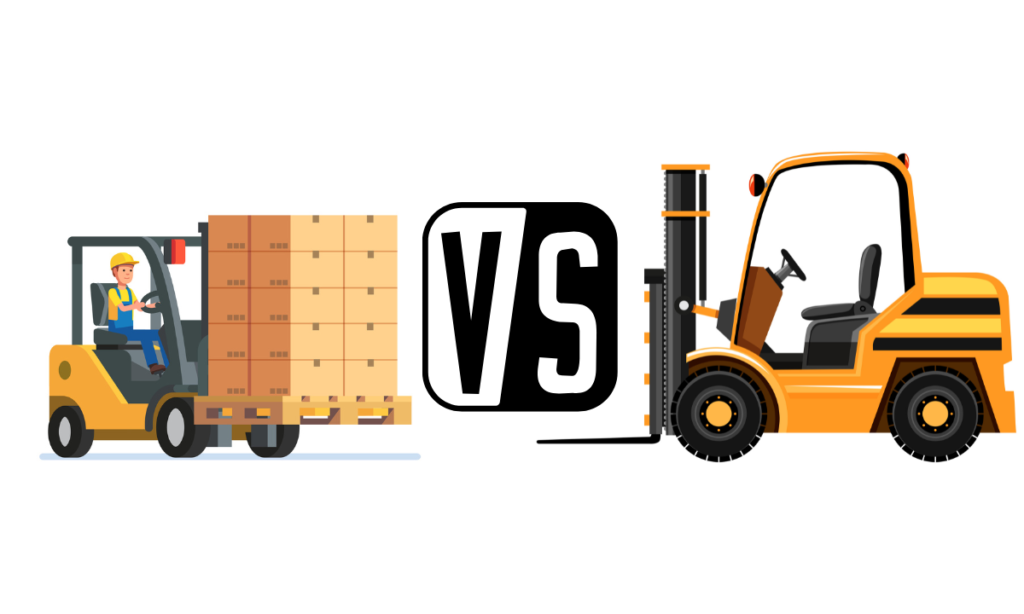When it comes to handling materials, deciding between electric forklifts and internal combustion forklifts is a crucial choice that directly influences how efficiently operations run, the environmental footprint, and overall productivity. Let’s explore the key differences and benefits that are making electric forklifts the increasingly favored option over their internal combustion counterparts.
Learn More : What is the Forklift Stability Triangle?
1. Operational Efficiency:
Electric Forklifts:
- Simplicity and Flexibility: Electric forklifts offer a simple and flexible operation, leading to a lighter operating intensity for operators.
- Precision Control: Electric steering, acceleration, hydraulic control, and brake systems are all intricately managed through electric signals, providing precise control.
- Improved Work Efficiency: The reduced labor intensity enhances the overall work efficiency and accuracy of tasks.
Internal Combustion Forklifts:
- Mechanical Control: Internal combustion forklifts rely on mechanical systems for steering, acceleration, and braking, resulting in a comparatively heavier operating intensity for operators.
- Potential for Vibration: The combustion engine introduces vibrations, impacting operator comfort and potentially affecting load stability.
2. Environmental Impact:
Electric Forklifts:
- Low Noise: Electric forklifts operate with significantly lower noise levels, contributing to a quieter and more comfortable working environment.
- Zero Exhaust Emissions: Being emission-free, electric forklifts align with environmental sustainability goals and comply with stringent emissions regulations.
Internal Combustion Forklifts:
- Noise and Emissions: Internal combustion forklifts generate more noise and emit exhaust fumes, potentially impacting the overall workplace atmosphere and environmental compliance.
3. Technical Advancements:
Electric Forklifts:
- Rapid Development in Electronic Control Technology: The continual progress in electronic control technology enhances the comfort of operating electric forklifts.
- Wider Scope of Application: Technological advancements widen the scope of applications for electric forklifts, offering innovative solutions to various logistics challenges.
Internal Combustion Forklifts:
- Limited Technological Advancements: While there have been improvements, the scope for technological advancements in internal combustion forklifts is comparatively limited.
Learn More : Forklift Terminology and Definitions
Market Trends and Growth:
Given the numerous advantages, including improved efficiency, environmental friendliness, and technological advancements, the market demand for electric forklifts is anticipated to grow rapidly. As industries recognize these benefits, the market share for electric forklifts is expected to expand progressively.
In conclusion, the electric forklift emerges as the preferred choice for businesses aiming for enhanced efficiency, reduced environmental impact, and adaptation to evolving technological landscapes. The ongoing developments in electronic control technology position electric forklifts as pivotal players in the future of material handling.



